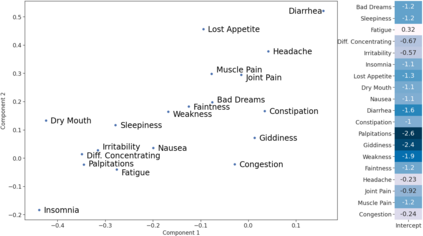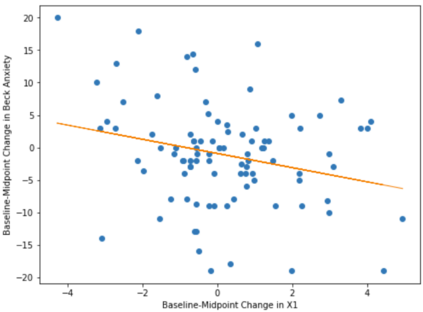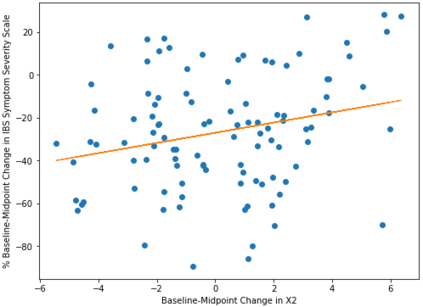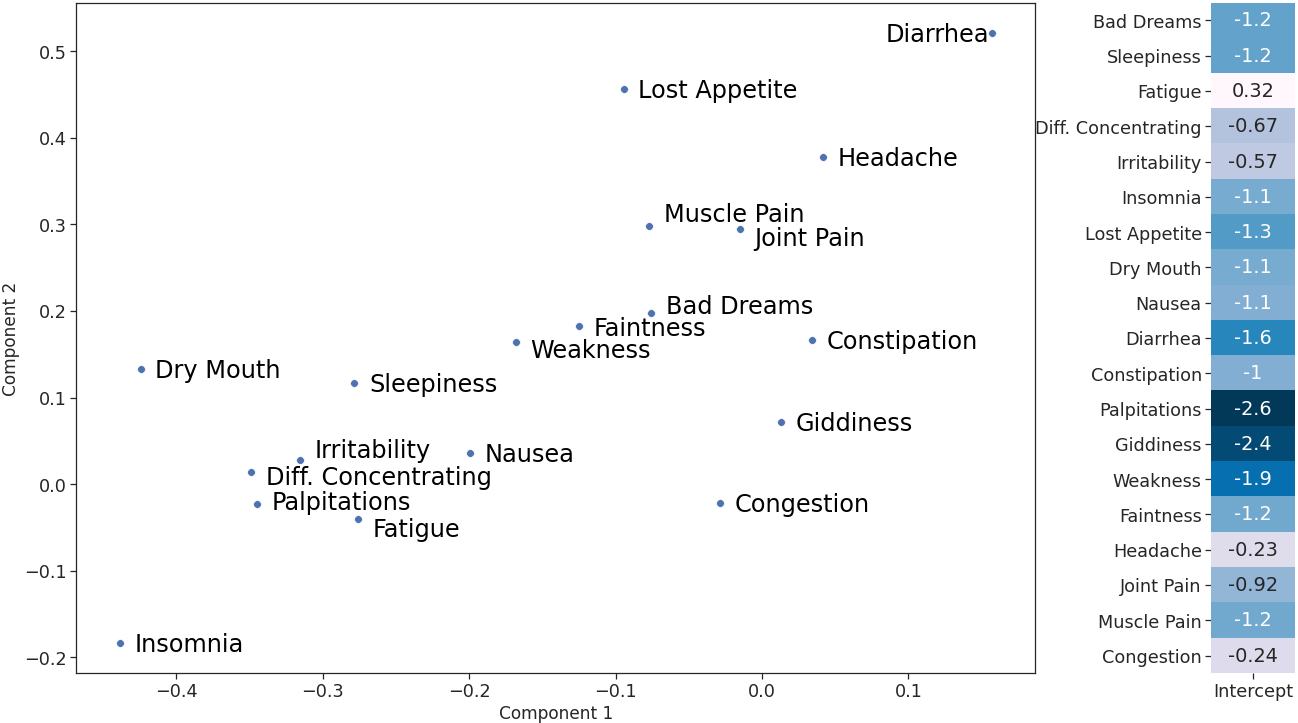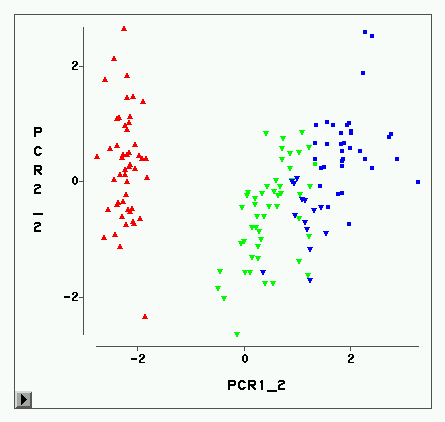The analysis of clinical questionnaire data comes with many inherent challenges. These challenges include the handling of data with missing fields, as well as the overall interpretation of a dataset with many fields of different scales and forms. While numerous methods have been developed to address these challenges, they are often not robust, statistically sound, or easily interpretable. Here, we propose a latent factor modeling framework that extends the principal component analysis for both categorical and quantitative data with missing elements. The model simultaneously provides the principal components (basis) and each patients' projections on these bases in a latent space. We show an application of our modeling framework through Irritable Bowel Syndrome (IBS) symptoms, where we find correlations between these projections and other standardized patient symptom scales. This latent factor model can be easily applied to different clinical questionnaire datasets for clustering analysis and interpretable inference.
翻译:对临床问卷数据的分析面临许多固有的挑战,这些挑战包括处理缺少领域的数据,以及全面解释具有不同规模和形式的许多领域的数据集。虽然已经制定了许多方法来应对这些挑战,但这些方法往往不健全,统计上不健全,或者不易解释。在这里,我们提出了一个潜在要素模型框架,扩展含有缺失元素的绝对数据和定量数据的主要组成部分分析。模型同时提供了主要组成部分(基数)和每个病人在潜伏空间这些基数上的预测。我们通过渗透性鲍埃尔综合症(IBS)症状展示了我们模型框架的应用,我们发现这些预测与其他标准化患者症状尺度之间的相互关系。这一潜在要素模型很容易用于不同的临床问卷数据集进行集群分析和解释。

